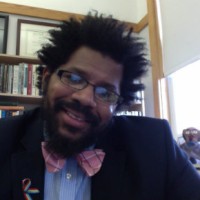A new series on faith in election season
At his inauguration on January 20, 1953, President Dwight D. Eisenhower took an unprecedented step: after taking the oath of office, he led the nation in prayer. During his prayer, which historian Kevin Kruse notes helped make Eisenhower’s inauguration as much a “religious consecration” as a “political ceremony,” the new president asked God to “make full and complete [the executive branch’s] dedication to the service of the people.”
Eisenhower’s professed dedication to serve all the citizens of the United States and his willingness to rely upon God’s help were not entirely new. They echoed the earlier theological struggles of Abraham Lincoln, who had pondered how the members of a nation could read the same Bible and pray to the same God and yet rend itself bloodily apart. Both men evidenced a commitment to listening for God’s voice in the political process. Both men claimed their call to be a servant to all the people.
These two qualities underlie many of the concerns that rise up in conversations that surround the current candidates for office in the United States. Who or what is their moral guide? Who do they consider part of the body politic they are being called to serve?
And for those of us who enter the polling booths, how do our own efforts to grapple with our faith, our religious conscience, and ethical imperatives shape the decisions we make? Although we continue to debate the meaning of the constitutional clause that separates church and state, most of us who are people of faith recognize that our religious commitments shape our worldview, our ethics, and our politics.
Fascinating shifts have occurred in both major political parties this past year, as the presidential nominees have presented conundrums and opportunities for faith communities. The formerly impregnable religious right has splintered over Donald Trump. Some evangelical leaders see his promise of conservative Supreme Court nominees and his very person more palatable than Hillary Clinton. Others have decided that supporting a thrice-married, once pro-abortion candidate who panders to xenophobic, racist, and sexist sectors of our society runs counter to their gospel faith.
And on the liberal side, which has for decades eschewed any connections with piety, the Democratic Party is embracing Clinton’s staunch Methodist background and Tim Kaine’s social justice-oriented Catholicism. Perhaps more than any other election year in recent history, this is the year for people of faith to engage in thoughtful and public reflection on the connections between current and past events.
The final eight weeks of a volatile and impassioned presidential election season are upon us. The editorial team of Then and Now is pleased to introduce a special series focused on issues related to the elections in the upcoming weeks. A slate of seasoned historians will consider a variety of issues that confront us as we consider our presidential, congressional, state, and local candidates. We will consider who we are called to be as Americans by considering who we have been in the past. Upcoming posts may include such topics as the role of first spouses, voter suppression, immigration, white racism, silence in the media around some segments of our voting population, the environment, civil rights, islamophobia, and gender rights.
We hope that this series will be edifying and thought provoking for you. We encourage you to share your thoughts and responses each week to keep the conversation going.
Our weekly feature Then and Now harnesses the expertise of American religious historians who care about the cities of God and the cities of humans. It's published in partnership with the Kripke Center of Creighton University and edited by Edward Carson and Beth Shalom Hessel.






